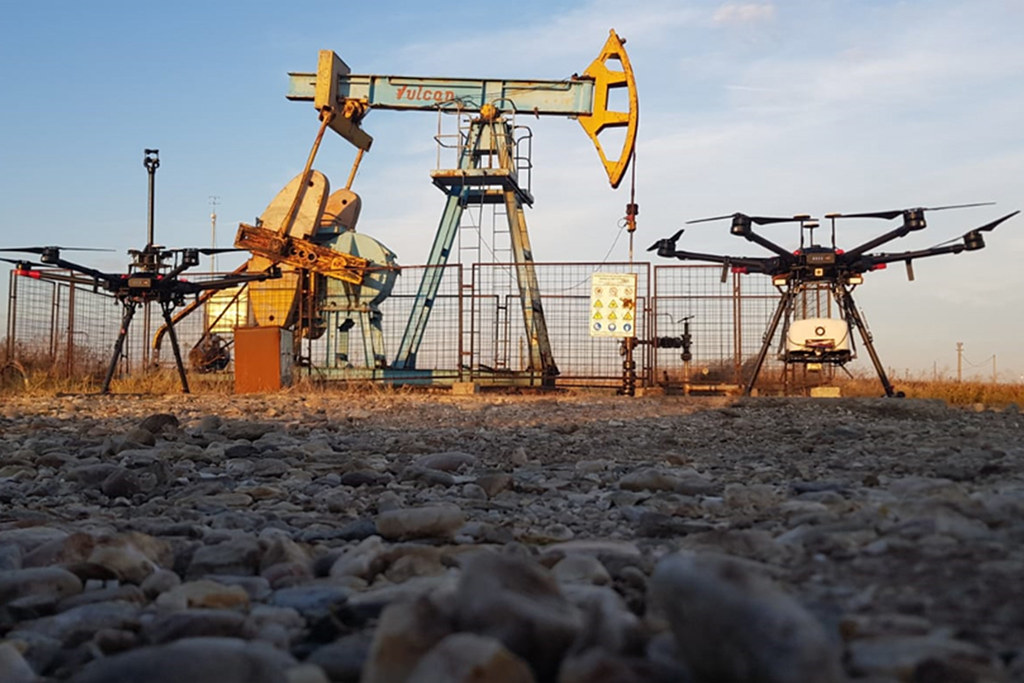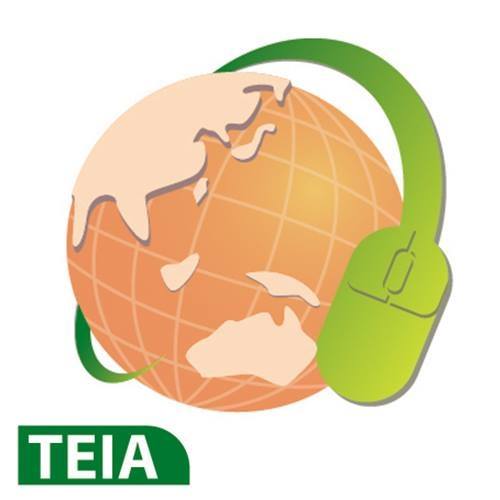編譯/姜唯;審校/林大利;稿源/ENS
殼牌、英國石油和道達爾公司等石油天然氣大廠已同意,加強溫室氣體甲烷排放報告機制的透明度,目標是使石油天然氣產業在未來10年內,以透明開放的方式大幅減少甲烷排放量。
以20年來看 甲烷暖化能力是二氧化碳80倍以上
為了支持實現全球氣候目標,油氣甲烷合作組織(Oil and Gas Methane Partnership, OGMP)目標到2025年使該產業的甲烷排放量減少45%,2030年減少60~75%。
以20年來看,直接釋放到大氣中的甲烷暖化能力是二氧化碳的80倍以上。減少甲烷排放的措施可以快速降低暖化速度,補足世界能源和運輸系統的脫碳工作,同時也能改善空氣品質。
11月23日,油氣甲烷合作組織在奈洛比、布魯塞爾和紐約同時宣布了新的政策框架OGMP 2.0。這套新標準旨在提高石油和天然氣業,甲烷排放報告機制的準確性和透明度。
油氣甲烷合作組織2014年在聯合國氣候峰會成立,是由聯合國環境規劃署、歐盟執委會和美國環境保護基金會領頭的氣候與乾淨空氣倡議聯盟。
OGMP 2.0使大眾更易精準比較各公司甲烷減排績效
身為致力於甲烷排放報告的唯一多方利益相關者合作夥伴,OGMP提供一套準則來幫助公司系統性地管理石油和天然氣營運中的甲烷排放,並提供可靠的平台來幫助成員公司,向產業利益相關者展示實際的減排量。
截至目前已有62家公司加入,資產遍及五大洲,佔全球石油和天然氣產量的30%。
OGMP 2.0框架是以測量為基礎的全面性甲烷報告框架,使政府官員、投資者和大眾更容易精準追蹤、比較公司之間的甲烷減排績效。
歐盟執委會正計畫在OGMP 2.0的基礎上,提案立法強制測量、報告和驗證所有能源相關的甲烷排放。
OGMP 2.0適用於整個石油和天然氣價值鏈,不僅包含上游生產,也涵蓋中游運輸以及下游加工和提煉等,可能大量排放溫室氣體但常被忽略的地方。
OGMP 2.0包括公司本身營運,以及負責公司大部分生產活動的合資企業。
甲烷減排若採用現有技術 有望使2050年地球均溫少上升0.2°C
國際能源局建議,採用現有技術就可以減少大約3/4的甲烷排放,而成本只要淨零排放的一半。將能源業的甲烷排放量減少90%,將使2050年地球平均溫度少上升0.2°C。
將化石燃料甲烷排放量減少75%,等於減少多達60億噸的二氧化碳排放,佔全球2019年含土地利用改變在內溫室氣體排放量的近10%。
美國國家海洋大氣管理局(NOAA)、LLBerkeley實驗室和科羅拉多州立大學博爾德分校的科學家,2019年的一項研究發現,在過去10年間,美國的天然氣產量至少成長了46%。然而,長期和經過良好校準的測量分析指出:
一、在過去10年間,美國的甲烷總排放量並未大幅增加
二、石油和天然氣甲烷排放量略有增加,但增加幅度遠低於先前的部分研究預測
三、在部分過去研究中,甲烷和乙烷排放量之間存在時間常數關係的假設,導致對油氣排放趨勢的高估
新觀測站將追踪甲烷排放
聯合國環境規劃署和歐盟執委會正在討論建立一個獨立的國際甲烷排放觀測站。這個觀測站將匯整和分析多個甲烷排放資料來源,包括OGMP成員公司報告的資料,以加速全球甲烷排放量的減少。
透過協助全球產業和政府解決排放報告上的不確定性,這個觀測站將提高甲烷排放資料的一致性和可信度,加速減排行動。
Oil and Gas Firms Take Initiative on Methane Emissions
NEW YORK, New York, December 6, 2020 (ENS)
Major players in the oil and gas industry such as Shell, BP and Total have agreed to report emissions of the potent greenhouse gas methane with a new, much higher level of transparency. The goal is to enable the oil and gas industry to realize deep reductions in methane emissions over the next decade in a way that is transparent to civil society and governments.
To support the realization of global climate targets, the Oil and Gas Methane Partnership aims to deliver a 45 percent reduction in the industry's methane emissions by 2025, and a 60-75 percent reduction by 2030.
Methane released directly into the atmosphere has more than 80 times the warming power of the greenhouse gas carbon dioxide, CO2, over a 20-year period. Actions to cut methane emissions can yield a near-term reduction in the rate of warming, complementing efforts to decarbonize the world's energy and transport systems while also delivering air quality benefits.
On November 23, the Oil and Gas Methane Partnership, OGMP, announced its new framework simultaneously in Nairobi, Brussels and New York. The OGMP 2.0 framework is the new standard that is intended to improve the reporting accuracy and transparency of methane emissions in the oil and gas sector.
“To win the race to net-zero emissions, we need everyone on board. We need ambitious action from the oil and gas industry,” Inger Andersen, executive director, UN Environment Programme said. “UNEP is committed to supporting efforts that reduce methane emissions, and we recognize the leadership of companies that have joined such an ambitious methane reporting framework. We look forward to seeing actions that turn commitments into actual emissions reduction.”
The Oil and Gas Methane Partnership, launched at the UN Climate Summit in 2014, is a Climate and Clean Air Coalition initiative led by the UN Environment Programme, the European Commission, and the U.S.-based Environmental Defense Fund.
OGMP is the only multi-stakeholder partnership working on methane emissions reporting. It provides a protocol to help companies systematically manage their methane emissions from oil and gas operations and offers a credible platform to help member companies demonstrate actual reductions to industry stakeholders.
To date, 62 companies with assets on five continents, representing 30 percent of the world's oil and gas production, have joined the partnership.
At the core of the effort is the OGMP 2.0 framework, a comprehensive measurement-based methane reporting framework that will make it easier for officials, investors and the public to accurately track and compare performance across companies in ways that have not been possible to this point.
For its part the European Commission is planning to propose legislation making measurement, reporting, and verification for all energy-related methane emissions compulsory, building on the OGMP 2.0 framework.
“I am very happy to see the energy industry taking immediate action on methane emissions. A clear commitment to measure and monitor emissions is an important first step for significantly reducing them and I am proud of what we have achieved together,” said EU Energy Commissioner Kadri Simson. “Today's signature is the first deliverable under the Commission's recent methane strategy. There are many more steps to take to cut emissions along the entire value chain and I hope to work closely with all – European and international – partners to reach this goal.”
The OGMP 2.0 framework applies to the full oil and gas value chain, not only upstream production but also midstream transportation and downstream processing and refining – areas with substantial emissions potential that are often left out of reporting today.
The OGMP 2.0 framework includes a company's own operations and also joint ventures responsible for a substantial share of their production.
Technology is Not a Barrier
The International Energy Agency advises that roughly three-quarters of all methane emissions could be reduced with the technology that exists today, and close to half at zero net cost. Reducing methane emissions from the energy sector by 90 percent would shave two-tenths of a degree Celsius from the forecasted rise in the planet's average temperature by 2050.
Reducing fossil methane emissions by 75 percent can prevent up to six gigatonnes of carbon dioxide equivalent emissions annually – almost 10 percent of the planet's 2019 greenhouse gas emissions, including land-use change.
“Thanks to the 62 companies for committing to measure, report and reduce pollution from their core operations and joint ventures. This will be the basis for robust standards in Europe, and beyond, that ensure the oil industry takes the practical actions urgently needed for our climate,” said Fred Krupp, president of the New York-based nonprofit Environmental Defense Fund.
A 2019 study by scientists from the National Oceanic and Atmospheric Administration, the LLBerkeley Lab, and the University of Colorado Boulder found that in the past decade, natural gas production in the United States has increased by at least 46 percent. Yet, based on long‐term and well‐calibrated measurements, we find that
– There is no large increase of total methane emissions in the United States in the past decade
– There is a modest increase in oil and gas methane emissions, but this increase is much lower than some previous studies suggest
– The assumption of a time‐constant relationship between methane and ethane emissions has resulted in major overestimation of an oil and gas emissions trend in some previous studies
New Observatory Will Track Methane Emissions
The UN Environment Programme, UNEP, and the European Commission are finalizing plans to set up an independent International Methane Emissions Observatory. It will aggregate and analyze multiple methane emissions data streams, including data reported by OGMP member companies, to accelerate reductions in methane emissions globally.
By assisting industry and governments globally in addressing uncertainty related to reported emissions, the Observatory will improve the consistency and credibility of methane emissions data and accelerate mitigation actions.
Total, the French energy company that produces and markets fuels, natural gas and electricity, has been a part of the Oil and Gas Methane Partnership since 2014. Now, Total has joined the second phase, OGMP 2.0. This second phase of the partnership aims at defining a broader and more ambitious methane-reporting framework, extended to the entire gas value chain.
“Reducing methane emissions is a key element to ensure that natural gas fully plays its role in the energy transition and this new partnership will foster the sharing of industry best practices, especially on non-operated assets, and improve monitoring,” said Total Chairman and CEO Patrick Pouyanné. “It is a new step in the fight against methane emissions and our industry is deeply committed to the success of this initiative.”
Claudio Descalzi is the chief executive officer of ENI, a large Italian energy company dealing in petroleum, natural gas, and petrochemicals. He agrees with Total's Pouyanné, saying, “Reducing methane emissions is a crucial effort in the industry's decarbonization pathway.”
“As a factor on which we can have an immediate and concrete positive impact, OGMP 2.0 offers an internationally recognized blueprint to companies across our industry willing to make improvements in their emission reductions in all phases of the value chain,” Descalzi said. “We look forward to continue working with all partners involved, as only through collaboration with international organizations, civil society and governments we can deliver on our common goals.”
※ 全文及圖片詳見:ENS





